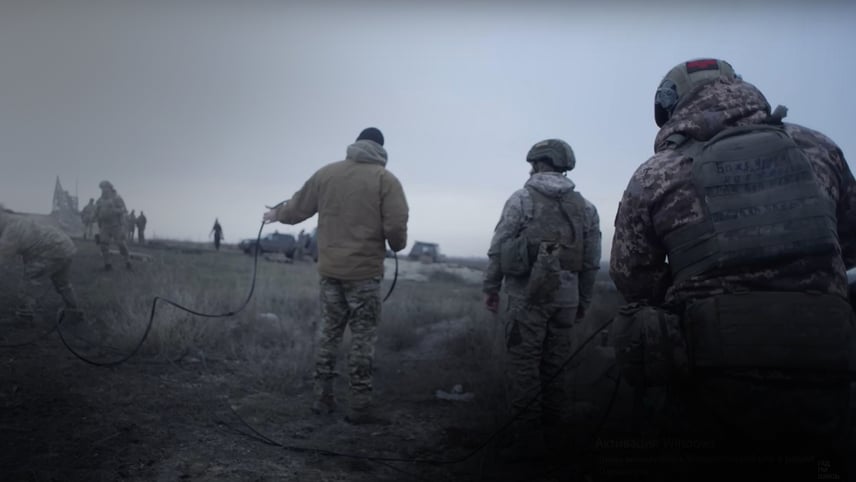Two years in the infantry and a year in special operations. Why do soldiers leave, and what brings them back to service?
Chicha is one of the more than one hundred thousand military personnel who left for SOCH in the last two years. According to the Office of the Prosecutor General, in 2023-2024, law enforcement registered over 113 thousand cases of unauthorized departure from units and desertion. In November 2024, lawmakers allowed military personnel to return to service after their first SOCH through a simplified procedure. According to Commander-in-Chief Alexander Syrsky, 10 thousand military personnel took advantage of this law.
Hromadske spoke with four soldiers from the 93rd Brigade who decided to return from SOCH after the law was enacted. They served in different units — mortars and infantry — but all experienced heavy fighting in Bakhmut and Klishchiyivka. They say they left the military due to exhaustion.

“There’s no rest, constantly moving from position to position. In Bakhmut, we didn’t leave the basement; there were times when we went 24 days without washing, just sitting there,” recalls a soldier known by the call sign Kiryuha, who fought as an infantryman for two years before spending a year in SOCH.
The chief sergeant of the 93rd Brigade, Vitaliy Pyasetsky, acknowledges that the issue has become widespread within the Defense Forces. It particularly intensifies after heavy battles, such as the defense of Bakhmut, which the 93rd OMBr held.
“People get tired. Especially those with infantry experience in heavy combat. By law, military personnel are entitled to 30 days of leave. With the current realities of war, and disrupted mobilization, units simply cannot afford to let these people take leave. A unit can lose its operational capability, if not completely, then close to it,” Pyasetsky reveals the issues leading to SOCH.
Partially, in his opinion, the problem could be addressed by a simplified transfer procedure between units, launched through the “Army+” app. After all, another reason people go to SOCH is conflicts with commanders or within the team.
“I won’t say everything is fine. There are, let’s say, not entirely conscientious commanders, various situations,” shares the company commander, Pank. Specifically, in his unit, soldiers spoke with Hromadske.
According to Pank, military personnel may feel a lack of support from commanders while on the front lines. Another reason is fear: some find it difficult to pull themselves together and thus flee from the battlefield. Newcomers, he says, go to SOCH when they find themselves in disorganized and undisciplined teams.
“There are situations where infantry is simply abandoned. A person I joined the army with ended up in another brigade. They were left for two weeks in the Serebryansky forest. He just got up and left, ending up captured by the Russians. Maybe his fate would have turned out differently,” Pank recounts.
He believes that the adoption of the law on the decriminalization of SOCH motivated many to return to the army: in the last month, 15 soldiers have joined his unit.
“That’s a lot; previously, if one or two SOCH personnel returned, it was more of an exception than the rule,” says Pank.
A master who fought from 2014 to 2016 and returned to the army at the beginning of the full-scale invasion shares that he left for OZCH because he couldn’t handle the pressure. He was afraid that he would have to return through the infantry, but after speaking with the brigade recruiters, he was directed to BBpS.
“There’s no certainty about how long this will last. When we started the war, everyone had the mindset that we would quickly win and return home,” explains Chicha another reason why soldiers leave for SOCH.

Another issue raised by chief sergeant Vitaliy Pyasetsky is that soldiers do not immediately return to their chosen units; they are first sent to a reserve battalion. There, not only those who voluntarily decided to return may be found, but also less motivated soldiers detained by the Military Law Enforcement Service. For instance, spending a month with alcohol-dependent individuals in these battalions, those returning voluntarily may lose their motivation. Therefore, the chief sergeant of the brigade argues that the procedure for returning from SOCH needs to be simplified.
One of the reasons Chicha left for SOCH after the heavy fighting in Soledar and Bakhmut is his pregnant wife. They are from Nikopol, which is under Russian shelling. At her request, he left the military to move together to a safer city — Kyiv. However, he never felt comfortable in civilian life.
“When the kids and my wife say, ‘Let others fight,’ and then you realize that no one else is stepping up: everyone is either trying to leave the country or doing something else, you understand that you haven’t fully fulfilled your duty; your conscience gnaws at you. Sometimes it’s even embarrassing to look fellow soldiers in the eye whom you keep in touch with. Although no one has ever blamed me for leaving,” Chicha says.
To fulfill his duty, he returned to the army.